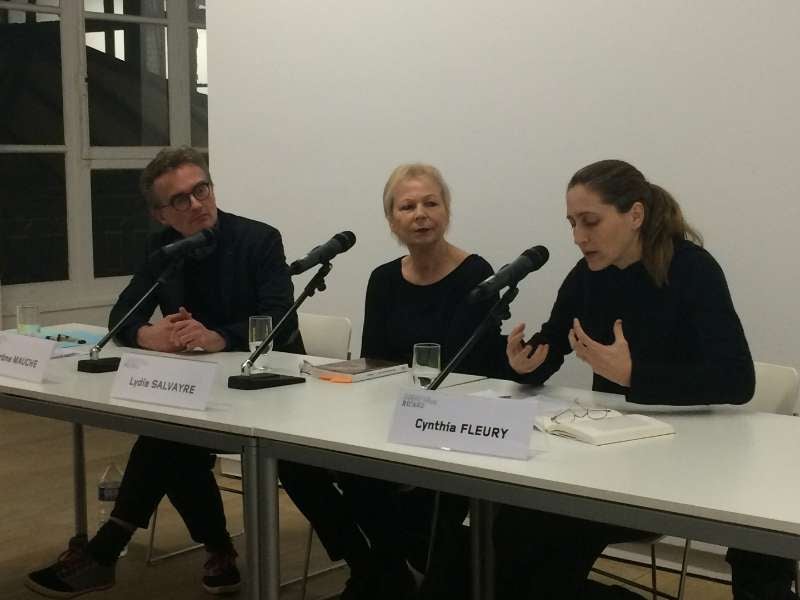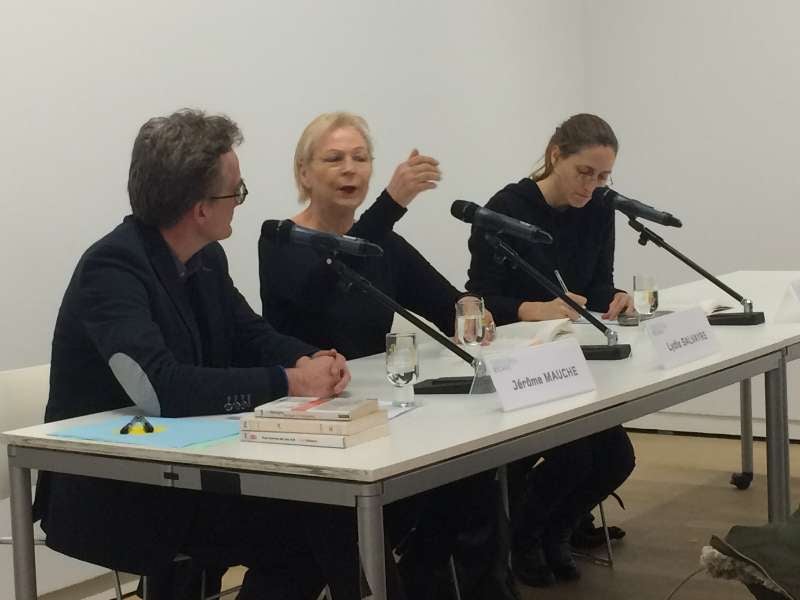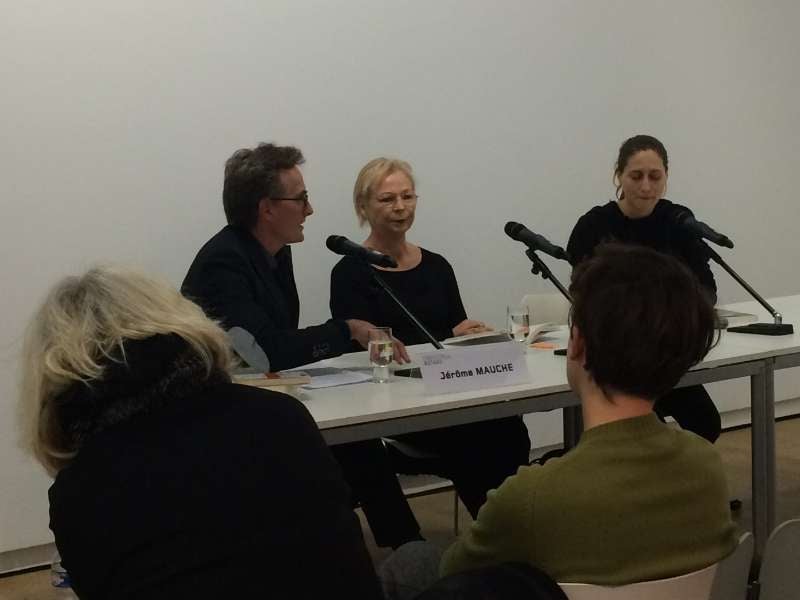SAISIR
This “Poetry Platform” session offers a meeting between philosopher Cynthia Fleury and novelist Lydie Salvayre.
Their work lucidly and broadly explores the contemporary world and the complexity of individual and group psyches. Both help us understand processes of existential individuation and truth representation, thereby suggesting possible forms of action.
Cynthia Fleury
Cynthia Fleury is a philosopher and psychoanalyst working as a researcher at the Institut des Sciences de la communication, a professor at the American University of Paris and an associate professor at MINES ParisTech. Her work focuses on tools of democratic regulation. She is also associate researcher at the Muséum national d’Histoire naturelle and holds the philosophy chair at Hôpital Sainte-Anne (GHT Paris—Psychiatry and Neurosciences). The multifariousness of Cynthia Fleury’s areas of study and thought, which intersect with science, enables her to develop a particularly stimulating vision of the world, and contributes to the acuity of her analyses. She is a member of the national ethics consultation committee (CCNE).
Since publishing her thesis, Métaphysique de l’imagination at Éditions d’Écarts in 2000, she has published the essays Mallarmé et la parole de l’imâm, Éditions d’Écarts, 2001; Pretium doloris : L’accident comme souci de soi, Pauvert, 2002; Dialoguer avec l’Orient : retour à la Renaissance, PUF, 2003; as well as two co-authored books, one with Yves Charles Zarka, Difficile tolérance, PUF, 2004; the other with Jean-Luc Muracciole, Manifeste pour une nouvelle école, Éditions Little Big Man, 2005.
She has edited a number of collective books, including Imagination, imaginaire, imaginal, P.U.F, 2006; and with Anne-Caroline Prévot-Julliard, L’Exigence de la réconciliation. Biodiversité et société, Éditions du Muséum national d’Histoire naturelle/Fayard, 2012, and Le souci de la nature. Apprendre, inventer, gouverner, CNRS Éditions, 2017.
She continues to work on truth dynamics in democratic societies: Les Pathologies de la démocratie, Fayard, 2005; La Fin du courage : la reconquête d’une vertu démocratique, Fayard, 2010; Les irremplaçables, Gallimard, 2015.
Lydie Salvayre
Lydie Salvayre’s literary work is striking for its ambition, aptness and language, as well as its irony and sarcasm. One of her novelistic levers is her way of connecting mental spaces with real contemporary or historical periods by means of spoken and hybrid language, highlighting the fates of individuals running up against group hostility or incomprehension. After studying literature and then medicine, she practiced psychiatry, then child psychiatry, and published her first books, which were increasingly successful.
She is the author of La Vie commune, Julliard, 1991; La Médaille, Seuil, 1993; La Puissance des mouches, Seuil, 1995; La Compagnie des spectres, Seuil, 1997; Quelques conseils aux élèves huissiers, Verticales, 1997; La Conférence de Cintegabelle, Seuil, 1999; Les Belles âmes, Seuil, 2000; Et que les vers mangent le bœuf mort, Verticales, 2002; Passage à l’ennemie, Seuil, 2003; La méthode Mila, Seuil, 2005; Portrait de l’écrivain en animal domestique, Seuil, 2007; Petit traité d’éducation lubrique, Cadex, 2008; BW, Seuil, 2009; Hymne, Seuil, 2011; Sept femmes. Emily Brontë, Marina Tsvetaeva, Virginia Woolf, Colette, Sylvia Plath, Ingeborg Bachmann, Djuna Barnes, Librairie Académique Perrin, 2013; Pas pleurer, Seuil, 2014; Tout homme est une nuit, Seuil, 2017. She has won numerous literary prizes, including the Prix Novembre and the Prix Goncourt.
Most of her books have been adapted for the theatre, by Zabou Breitman, Monica Espina, Laurence Février, Jean-Yves Lazennec and Gérard Lorcy.
She has also given performance-readings conceived with musicians Serge Teyssot-Gay and Marc Sens, and these have been published by Éditions Verticales: Contre, 2002; and Dis pas ça, 2006.












